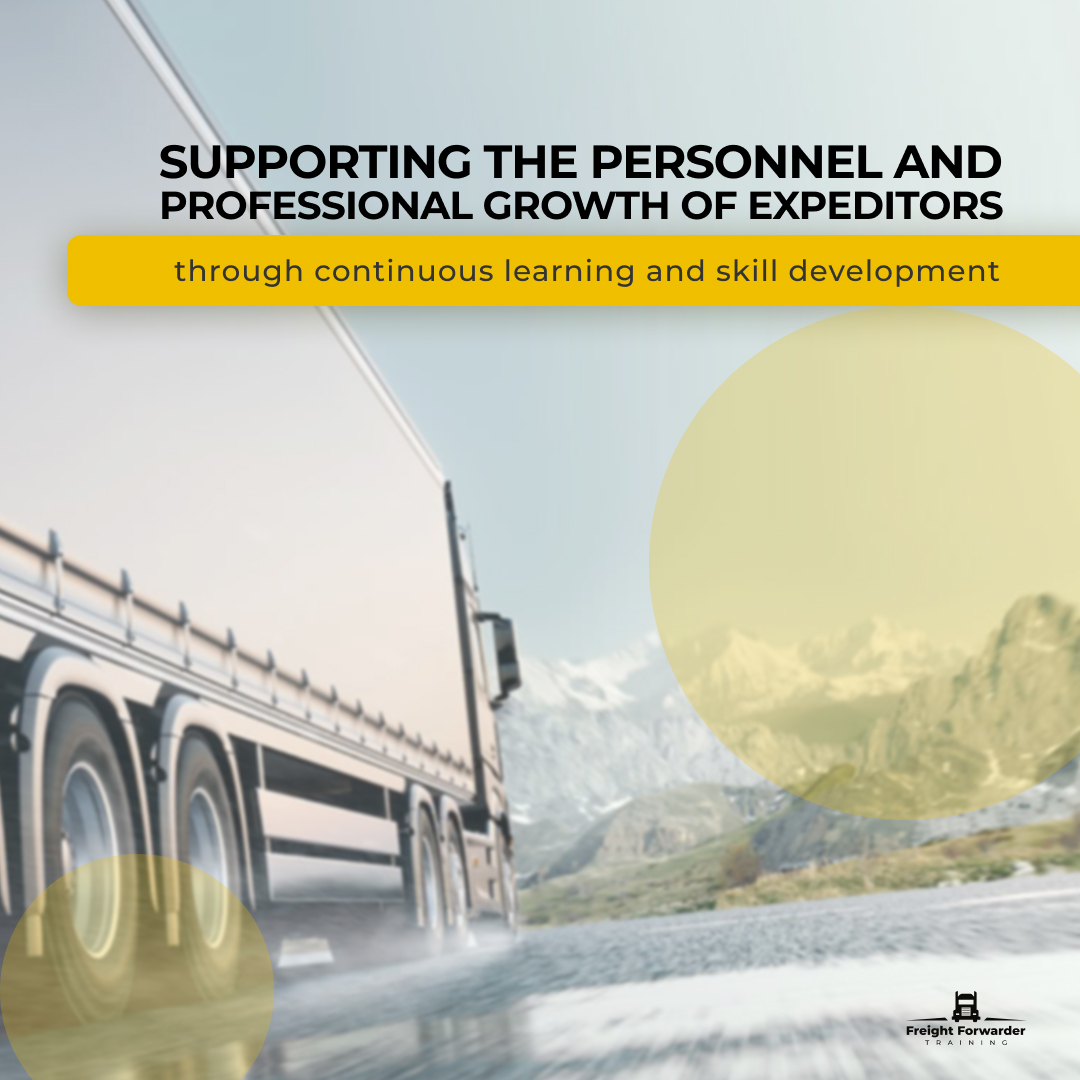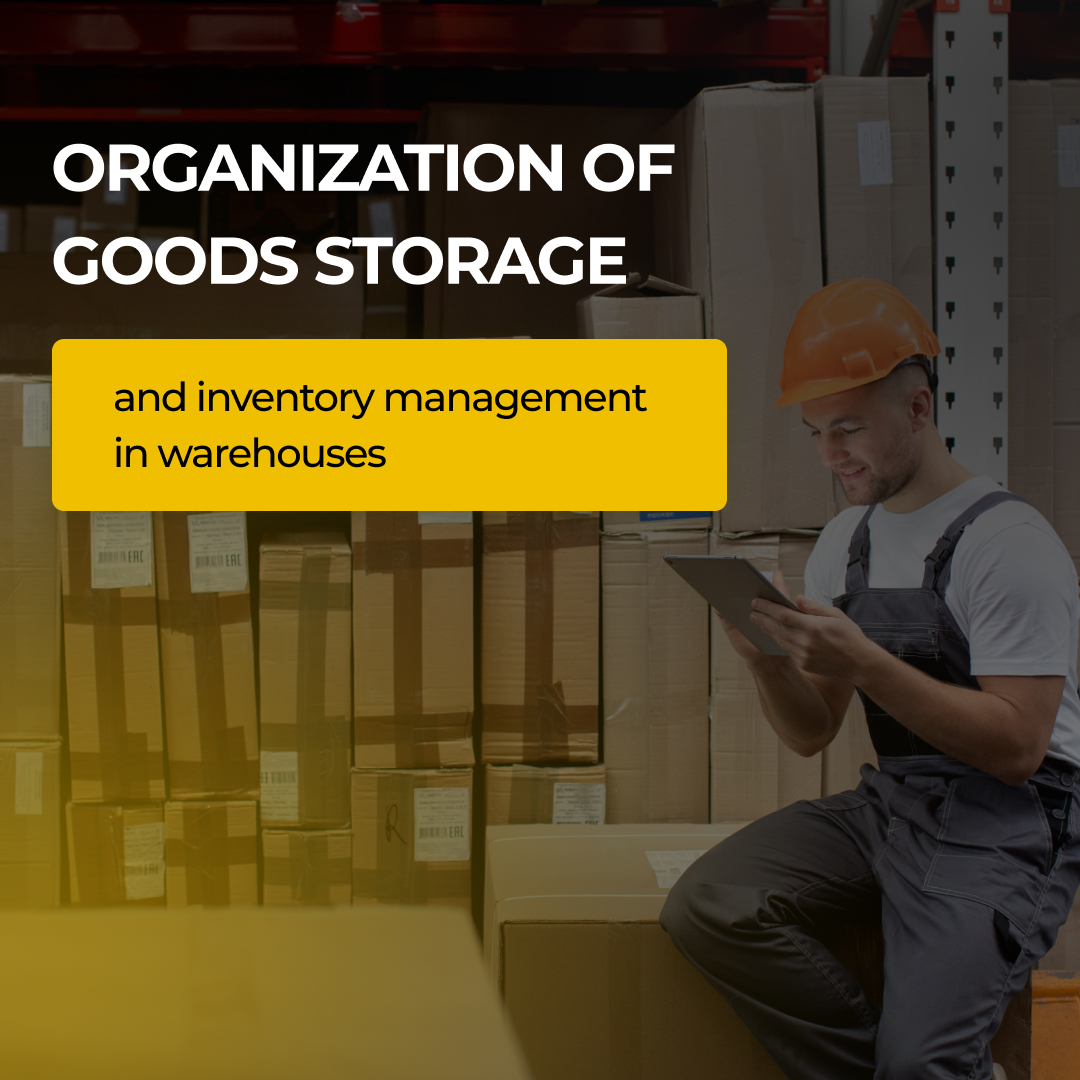In the modern world of logistics and transportation, expeditors play a pivotal role in ensuring the efficient delivery of goods…

Supporting the Personal and Professional Growth of Expeditors through Continuous Learning and Skill Development
In the modern world of logistics and transportation, expeditors play a pivotal role in ensuring the efficient delivery of goods from the sender to the receiver. This crucial professional sector demands the continuous enhancement of skills and knowledge to remain competitive and adapt to the ever-evolving industry landscape.
Expeditor’s responsibilities encompass a wide range of tasks, from coordinating shipments and managing documentation to handling customs procedures and solving logistical challenges. To excel in this field, individuals must not only possess a solid foundation of logistical and organizational skills but also stay up-to-date with industry trends, regulations, and emerging technologies.
Here are some key factors that underline the importance of continuous learning and skill development for expeditors:
Adapting to Industry Changes: The logistics and transportation sector is dynamic, with new technologies, regulations, and market trends emerging regularly. Expeditors need to stay informed about these changes to provide the best service to their clients and employers.
Enhancing Efficiency: Developing advanced skills can significantly improve the efficiency of expeditor’s work. This may include using software for route optimization, mastering customs procedures, or understanding the intricacies of international trade agreements.
Problem Solving: Expeditor’s job often involves dealing with unexpected challenges, such as delayed shipments or customs issues. Continuous learning equips them with problem-solving skills to address these issues effectively.
Career Growth: Those who invest in their professional development are more likely to advance in their careers. Certifications and specialized training can open doors to higher-paying positions and more significant responsibilities.
Client Satisfaction: Satisfied clients are more likely to return and recommend your services. By constantly improving their skills, expeditors can provide a better experience for clients, which is essential for business success.
To support the personal and professional growth of expeditors, companies and individuals should consider the following strategies:
Training Programs: Companies can offer regular training programs, workshops, and seminars to help their expeditors stay current with industry trends and regulations.
Certifications: Encourage and sponsor employees to obtain relevant certifications such as Certified International Freight Forwarder (CIFF) or Certified Customs Specialist (CCS).
Mentorship: Establish mentorship programs where experienced expeditors can guide and share their knowledge with newcomers.
Access to Resources: Provide access to industry publications, online courses, and informational resources to foster self-directed learning.
Professional Associations: Encourage participation in industry-specific associations and conferences to network and gain insights from peers.
In conclusion, the logistics and transportation industry relies heavily on the expertise and adaptability of expeditors. Continuous learning and skill development are paramount to their success and the success of the organizations they serve. By prioritizing these aspects, we can ensure that expeditors remain valuable assets in the ever-evolving world of logistics.
Our latest posts
Our latest posts

Supporting the Personal and Professional Growth of Expeditors through Continuous Learning and Skill Development

Оrganization of Goods Storage and Inventory Management in Warehouses
Efficient goods storage and inventory management are critical aspects of any successful warehouse operation. They directly impact a company’s ability…

How to resolve conflicts and disputes arising in the process of forwarding
Resolving conflicts and disputes that arise during the process of expedition is crucial for maintaining smooth operations and fostering positive…















